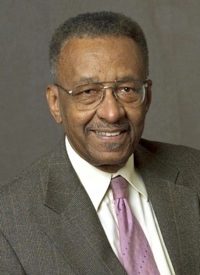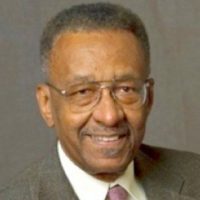
The late South African economist William Hutt, in his 1964 book, The Economics of the Colour Bar, said that one of the supreme tragedies of the human condition is that those who have been the victims of injustices and oppression “often be observed to be inflicting not dissimilar injustices upon other races.”
Born in 1936, I’ve lived through some of our openly racist history, which has included racist insults, beatings and lynchings. Tuskegee Institute records show that between the years 1880 and 1951, 3,437 blacks and 1,293 whites were lynched. I recall my cousins and me being chased out of Fishtown and Grays Ferry, two predominantly Irish Philadelphia neighborhoods, in the 1940s, not stopping until we reached a predominantly black North or South Philly neighborhood.
Today all that has changed. Most racist assaults are committed by blacks. What’s worse is there are blacks, still alive, who lived through the times of lynching, Jim Crow laws, and open racism who remain silent in the face of it.
Last year, four black Skidmore College students yelled racial slurs while they beat up a white man because he was dining with a black man. Skidmore College’s first response was to offer counseling to one of the black students charged with the crime. In 2009, a black Columbia University professor assaulted a white woman during a heated argument about race relations. According to interviews and court records obtained and reported by Denver’s ABC affiliate (12/4/2009), black gangs roamed downtown Denver verbally venting their hatred for white victims before assaulting and robbing them during a four-month crime wave. Earlier this year, four black girls beat a white girl at a McDonald’s, and the victim suffered a seizure. Chicago Mayor Rahm Emanuel ordered an emergency shutdown of the beaches in Chicago because mobs of blacks were terrorizing families. According to the NBC affiliate there (6/8/2011), a gang of black teens stormed a city bus, attacked white victims and ran off with their belongings.
Racist black attacks are not only against whites but also against Asians. In San Francisco, five blacks beat an 83-year-old Chinese man to death. They threw a 57-year-old woman off a train platform. Two black Oakland teenagers assaulted a 59-year-old Chinese man; the punching knocked him to the ground, killing him. At Philly’s South Philadelphia High School, Asian students report that black students routinely pelt them with food and beat, punch and kick them in school hallways and bathrooms as they hurl racial epithets such as “Hey, Chinese!” and “Yo, Dragon Ball!” The Asian American Legal Defense and Education Fund charged the School District of Philadelphia with “deliberate indifference” toward black victimization of Asian students.
In many of these brutal attacks, the news media make no mention of the race of the perpetrators. If it were white racist gangs randomly attacking blacks, the mainstream media would have no hesitation reporting the race of the perps. Editors for the Los Angeles Times, The New York Times, and the Chicago Tribune admitted to deliberately censoring information about black crime for political reasons. Chicago Tribune Editor Gerould Kern recently said that the paper’s reason for censorship was to “guard against subjecting an entire group of people to suspicion.”
These racist attacks can, at least in part, be attributed to the black elite, who have a vested interest in racial paranoia. And that includes a President who has spent years aligned with people who have promoted racial grievance and polarization and appointed an Attorney General who has accused us of being “a nation of cowards” on matters of race and has refused to prosecute black thugs who gathered at a Philadelphia voting site in blatant violation of federal voter intimidation laws.
Tragically, black youngsters — who are seething with resentments, refusing to accept educational and other opportunities unknown to blacks yesteryear — will turn out to be the larger victims in the long run.
Black silence in the face of black racism has to be one of the biggest betrayals of the civil rights struggle that included black and white Americans.
Walter E. Williams is a professor of economics at George Mason University. To find out more about Walter E. Williams and read features by other Creators Syndicate writers and cartoonists, visit the Creators Syndicate Web page at www.creators.com.
COPYRIGHT 2011 CREATORS.COM



